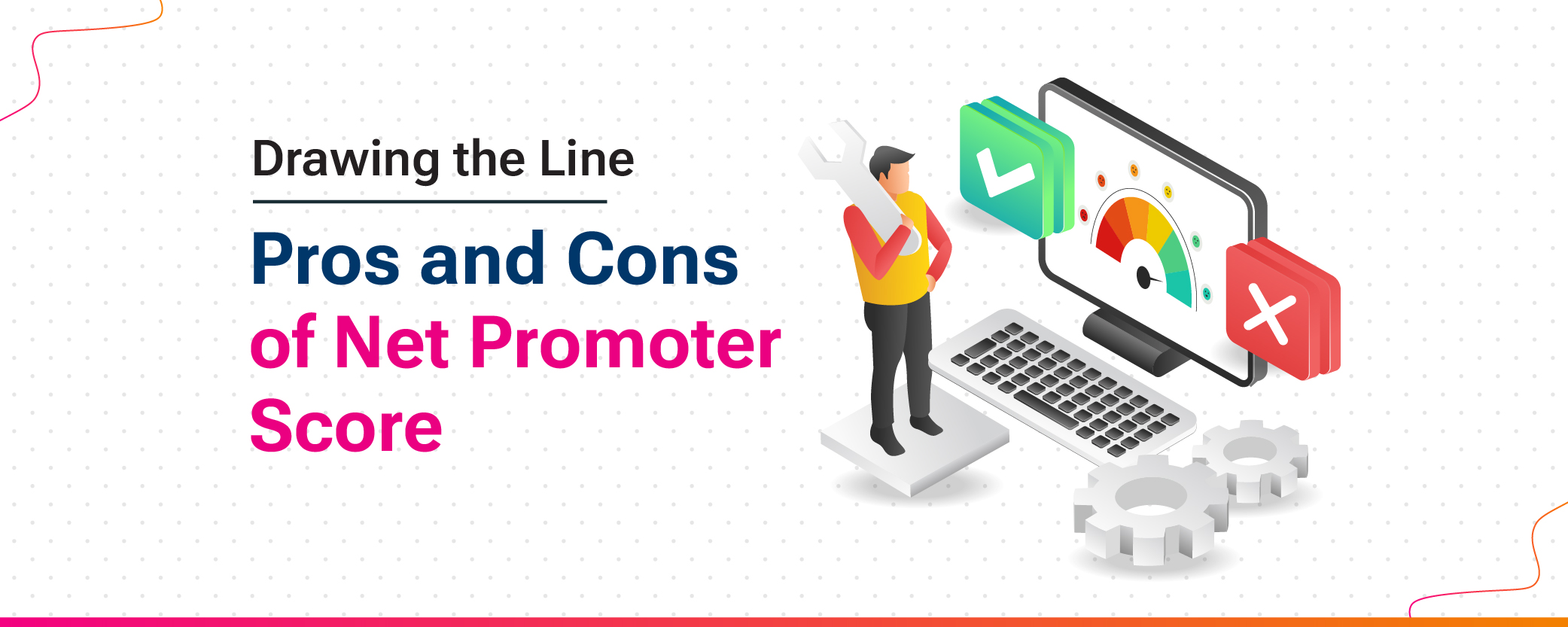Blogs
Products
Drawing the Line: Pros and Cons of Net Promoter Score
Jan. 10, 2025

NPS is always positioned as a metric that comprehensively covers many aspects of the business but businesses often mistake it as a metric that discloses details about every business aspect. But it's not the truth because NPS is a simple metric which is also why its capabilities are limited. So, to make sure that you don't become biased about NPS, in this blog we will talk about the advantages and disadvantages of NPS to draw the line for NPS’ use in getting business insights.
Understanding the Pros and Cons of NPS
NPS is praised for its simplicity and why not, as it makes many complex things easier, lets you understand customer loyalty, and also helps you take action for what is going wrong in your organization. But there's a limit to how much you rely on NPS because if a single tool can't hold the capability to summarise everything about your business. To understand this, here are the advantages and disadvantages of NPS which will help you to know where you can use NPS and where not.
The Pros of NPS
Simplicity
The first and most important advantage of NPS is simplicity. It works so simply that from launching an NPS Survey to understanding the results, everything can be very intuitive, and may take only a few reads to understand how everything works. Moreover, with the tools SurveyCXM it becomes even easier to execute and interpret NPS. But apart from execution, nps’ creation part is simple too. It takes just a single question that too doesn't need a creative rephrase.
Calculates Loyalty
Nps is great at calculating loyalty which many other metrics may not do well. See when you have to get benefits like lower CAQ, increased profits, and better brand positioning, customer loyalty is what helps you the most. So, measuring customer loyalty is a must for so many reasons which NPS does the best? Moreover, it also helps you identify those who are on the verge of leaving your brand and cause negative Word of Mouth. Hence, you can reach out to them and make efforts to retain them.
Elevates Customer Journey
The Cons of NPS
The first disadvantage of NPS is that NPS isn't everything but if you think about it, nothing can be everything alone, right? So, it's the misconception that businesses often carry that NPS is everything. Moreover, the reason behind this is that NPS reflects a lot of things like customer retention, CAQ, etc. But the only thing it comprehensively tells you about is customer satisfaction and loyalty.
Resolving Issues with NPS: Key Strategies
Even when NPS is a single question-based survey, the effectiveness of that question matters a lot. Sometimes, businesses complicate the questions they ask which goes opposite to the NPS's main characteristic of being simple. Moreover, the problem of not answering why, can also be solved by simply putting a follow-up question with the main question asking why you rated us the particular way.
Unlocking NPS Effectiveness with SurveyCXM by QDegrees
A Net Promoter Score Recap
How to Calculate NPS?
- Promoters: Rating of 9 or 10
- Passives: Ratings of 7 or 8
- Detractors: Ratings from 0 to 6
Now, the percentage of promoters and detractors is calculated according to this formula: % of Promoters - % of Detractors.
This formula is to find the NPS. For instance, if the percentage of promoters is 50% and detractors are 30%, the NPS will be 20.
Final Words
Net promoter score is indeed a great metric to get insights beyond just customer satisfaction and loyalty. But you should also know about the point from which other metrics should take over NPS. In simple words, NPS can hint the future trends about customer retention, acquisition cost, etc, but to be sure about it, other metrics and proofs must intervene.
To know more get in touch with our experts here
Net promoter score is indeed a great metric to get insights beyond just customer satisfaction and loyalty.
